Daikin vs Fujitsu: A Comprehensive Guide to Choosing Your Ideal Air Conditioner
Introduction: Daikin and Fujitsu at a Glance
Hey there, folks! If you’re scratching your head over whether to go with Daikin or Fujitsu for your home’s cooling needs, you’re not alone. These two giants in the air conditioning world are known for their top-notch tech and energy smarts. I’ve been around the HVAC block a few times, and I can tell you that Daikin is like the whiz kid of the industry, always pushing the envelope with innovation and eco-friendly solutions. Meanwhile, Fujitsu is the reliable workhorse, offering user-friendly and budget-friendly options. In this article, I’ll break down the nitty-gritty of performance, efficiency, and pricing, so you can confidently pick the right fit for your home. Let’s get started!
Introduction: Daikin and Fujitsu at a Glance
In the world of residential air conditioning, the debate of Daikin vs Fujitsu is a common one. Both brands are renowned for their technological prowess and top-notch performance. Daikin, a veteran in the industry for over 90 years, hails from Japan. It’s celebrated globally for pioneering technology and a strong focus on energy efficiency. Daikin’s designs aim to provide not just comfort, but also sustainability, making it a favorite among eco-conscious folks.
Now, let’s chat about Fujitsu. This Japanese giant has been making waves for the past 35 years with its high-performance, reliable, and sturdy HVAC solutions. Known for their robust build and consistent performance, Fujitsu air conditioners have earned a reputation for dependability and longevity.
Both Daikin and Fujitsu offer a wide range of products to meet various cooling needs. Their lineup includes split system air conditioners, perfect for individual rooms, ducted air conditioners for whole-house solutions, and multi-split air conditioners for flexible cooling in multiple areas. Whether you’re after energy efficiency, performance, or reliability, both brands have something tailored to your specific needs.
Performance and Energy Efficiency
When it comes to choosing between Daikin and Fujitsu, understanding their performance and energy efficiency can make all the difference. Let’s break it down.
Daikin’s Energy Efficiency and SEER Ratings
Daikin is quite the star in the air conditioning world, thanks to its advanced inverter technology. This nifty feature allows for precise temperature control, which means you’re not just comfortable but also saving on energy bills. Many Daikin models proudly flaunt a 5-star energy rating. However, don’t let that fool you—Daikin’s cooling energy efficiency rating sits at 25.20 SEER, which is a bit lower compared to others. But here’s where Daikin shines: its heating efficiency. With a 13.00 HSPF rating, it ranks second, making it a solid choice for those chilly months. This balance between cooling and heating efficiency makes Daikin a reliable partner for energy-conscious folks.
Fujitsu’s Energy Efficiency and SEER Ratings
Fujitsu, on the other hand, is a powerhouse when it comes to cooling. If you’ve got a big room or an open-plan space, Fujitsu is your go-to. Their commitment to energy efficiency is clear, with many models achieving stellar 4- or 5-star ratings. Fujitsu’s cooling energy efficiency is nothing short of impressive, boasting a 29.30 SEER rating, putting it near the top of the pack. And when it comes to heating, Fujitsu ties for first place with a 14.00 HSPF rating. This makes Fujitsu a fantastic choice for those looking for both performance and eco-friendliness in their air conditioning solution.
Innovative Technologies
When it comes to air conditioning, both Daikin and Fujitsu have carved out a reputation for innovation. Let’s dive into what makes each of these brands stand out.
Daikin’s Advanced Inverter Technology
Now, if you’ve ever wondered why Daikin often pops up in conversations about reliable AC systems, it’s largely due to their advanced inverter technology. Imagine your air conditioner as a car that can adjust its speed to maintain a steady pace without the constant stop-and-go. That’s what Daikin’s inverter does for your home climate. It keeps the compressor running smoothly, which means less energy wasted and a quieter operation. Plus, this tech helps extend the life of the unit—less wear and tear is always a good thing, right? So, if you’re looking for something that’s both efficient and long-lasting, Daikin’s got you covered.
Fujitsu’s Human Sensor Control and Economy Mode
On the flip side, Fujitsu brings some clever tricks to the table with their Human Sensor Control and Economy Mode. Picture this: you’re in a room, and the AC knows when you’re there and when you’re not. That’s the magic of Fujitsu’s sensor technology. It adjusts the temperature based on your presence, saving energy when you’re out of the room. And let’s not forget the Economy Mode, which fine-tunes power usage without skimping on performance. It’s a win-win for anyone keen on cutting down energy bills while staying comfy. Fujitsu’s blend of tech and practicality makes it a smart choice for modern living spaces.
Key Features and Functionality
When it comes to choosing between Daikin and Fujitsu air conditioners, understanding their key features and functionality can make a world of difference. Let’s dive into what sets these two brands apart and how they can enhance your home’s comfort.
Daikin’s Intelligent Eye and Wi-Fi Connectivity
Daikin air conditioners have long been celebrated for their innovative features. One standout is the “Intelligent Eye” technology. Imagine this: you’re sitting in your living room, and the AC knows when you’re there. It uses infrared sensors to detect movement and adjusts the cooling or heating to keep you comfy while saving energy. Pretty neat, right?
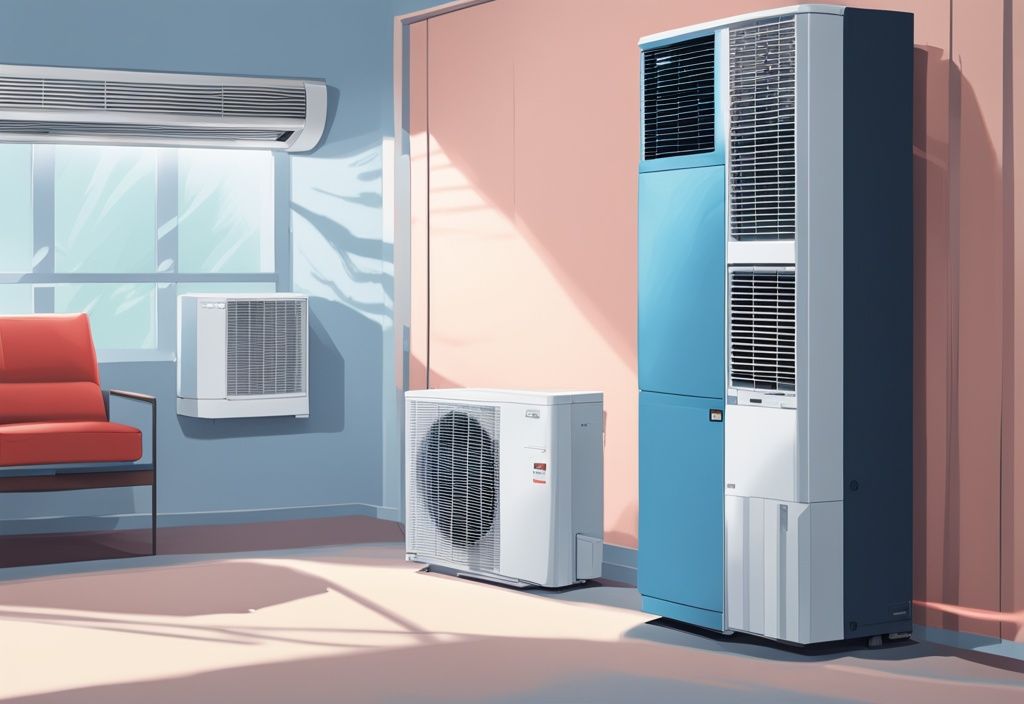
Now, Daikin takes it up a notch with the 2-Area Intelligent Eye, which keeps an eye on two separate zones. This means no more hot spots or cold corners in your room. Plus, with Wi-Fi connectivity, you can control your AC from your smartphone. Whether you’re at work or lounging on the couch, managing your home’s climate has never been easier. It’s a smart choice for tech enthusiasts who want convenience and efficiency.
Fujitsu’s Automatic Airflow Adjustment and Wi-Fi Connectivity
Fujitsu air conditioners are all about comfort and efficiency. They come with automatic airflow adjustment, which is like having a personal climate assistant. This feature tweaks the airflow direction and volume based on room temperature and occupancy. It’s like magic, ensuring you’re always comfortable without wasting energy.
Just like Daikin, Fujitsu offers Wi-Fi connectivity. You can adjust your AC settings from anywhere, giving you the flexibility to create the perfect indoor climate, whether you’re home or away. With its advanced airflow tech and easy connectivity, Fujitsu is a solid pick for those who value reliable and efficient climate control.
Reliability and Customer Satisfaction
When it comes to choosing between Daikin and Fujitsu, understanding their reliability and how satisfied customers are can make all the difference. Let’s dive into what people are saying and how these brands stand by their products.
Customer Reviews and Feedback
In the ongoing debate of Daikin vs Fujitsu, customer reviews are like gold nuggets of wisdom. Both brands have built a reputation for crafting durable and dependable air conditioning units. Now, I’ve been around the block a few times, and I can tell you, folks often rave about Daikin’s whisper-quiet operation. It’s a real bonus if you’re trying to catch some Zs or focus in your home office without the humdrum of noise.
Fujitsu, on the other hand, gets a tip of the hat for its robust performance and reliability. Some folks mention that Fujitsu units might hum a bit more than Daikin, but honestly, the difference is usually minor and doesn’t spoil the experience. Both brands have a solid track record of customer satisfaction, making them reliable choices for homeowners.
Warranty and After-Sales Service
Now, let’s chat about warranties and after-sales service, because these can be a game-changer when comparing Daikin vs Fujitsu. Both brands offer comprehensive warranties that show they mean business when it comes to quality and customer satisfaction.
Typically, you’re looking at a 5-year parts and labor warranty from both. Daikin sweetens the deal with a 7-year warranty on select models. Plus, if you’ve got an approved contractor on the job, both brands offer a 12-year warranty on compressors and parts. That’s a lot of peace of mind right there!
And here’s the cherry on top: both Daikin and Fujitsu have extensive networks of service centers around the globe. So, if you ever need a pro to step in, help is never far away. This solid after-sales service setup just adds to the reliability of both brands, making them trusted choices for your air conditioning needs.
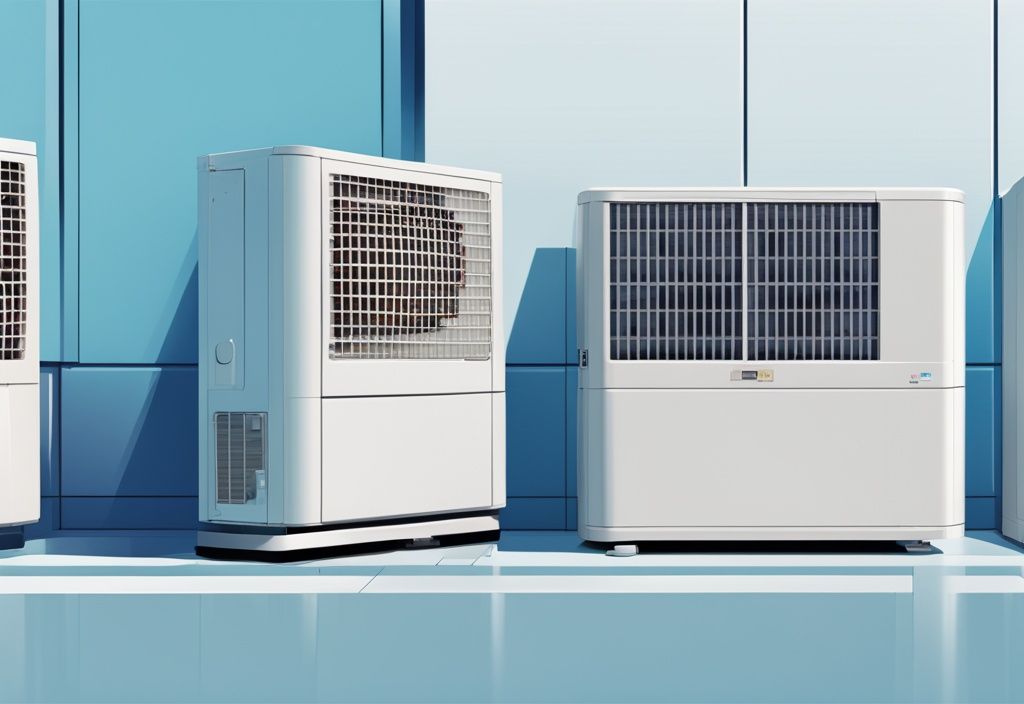
Price Analysis: Daikin vs Fujitsu
Daikin and Fujitsu are two leading names in the air conditioning world, each offering unique benefits. Let’s dive into how they stack up against each other in terms of cost and value.
Initial Costs and Long-term Savings
When you’re eyeing a new air conditioning system, the initial price tag can be a big factor. Daikin often comes with a heftier upfront cost. Why? Well, Daikin packs in some of the latest energy-saving tech and features that make it stand out. Sure, you might feel the pinch at first, but those energy-efficient systems can really pay off in the long run with lower energy bills. It’s like buying a fuel-efficient car—more upfront, but savings down the road.
Now, if you’re watching your wallet, Fujitsu might catch your eye. It’s known for being a more budget-friendly option while still delivering solid performance. Fujitsu systems are reliable and eco-friendly, making them a great pick if you’re looking to keep costs down without skimping on quality. You get the comfort you need without feeling like you’ve compromised on sustainability.
Comparing the Overall Value of Daikin and Fujitsu
Choosing between Daikin and Fujitsu really boils down to what you value most. Both brands have competitive pricing, but the specifics can vary based on the model and features you choose.
Daikin’s higher initial costs often come with perks like advanced technology and energy efficiency. If you’re someone who loves the idea of long-term savings and cutting-edge features, Daikin might be your match.
On the flip side, Fujitsu offers a strong value proposition with its cost-effective solutions. It doesn’t skimp on performance or reliability, making it a solid choice for larger spaces. If you’re after affordability and efficiency, Fujitsu’s got you covered.
In the end, picking between Daikin and Fujitsu should reflect your personal preferences, budget, and the specific needs of your space. Both brands offer reliable and efficient air conditioning solutions, so you’re in good hands no matter which way you go.
Which is Better for Your Needs?
Choosing between Daikin and Fujitsu depends on what you’re looking for in an air conditioning system. Let’s dive into what each brand offers, so you can make a decision that fits your home and lifestyle.
Daikin for Long-term Comfort and Air Quality
If you’re like me and value long-term comfort and top-notch air quality, Daikin might just be your best bet. I’ve seen a lot of systems over my 20 years, and Daikin consistently impresses with its reliability. Their air conditioners come with advanced air purification systems that do a stellar job of removing allergens and pollutants. This makes them a great choice if air quality is high on your priority list.
Plus, Daikin’s commitment to sustainability is something I really appreciate. Their energy-efficient models not only help the planet but also keep those electricity bills in check. And with their innovative technology, you can count on consistent performance for years to come. It’s a solid choice if you’re looking for comfort and want to do your bit for the environment.
Fujitsu for Cost-effective and Reliable Solutions
Now, if you’re after something that’s easy on the wallet but still reliable, Fujitsu could be the way to go. They’re known for their powerful cooling performance, which is perfect for larger spaces like open-plan living areas.
Fujitsu’s energy-efficient models are a win-win, reducing operational costs while keeping your home comfy. Their reputation for dependability comes from robust engineering and durable components, ensuring these units last the distance. For those of us who want to balance affordability with efficiency, Fujitsu offers a practical solution that ticks both the budget and environmental boxes.
Conclusion: Daikin vs Fujitsu – Which Should You Choose?
Choosing between Daikin and Fujitsu can feel like picking between two trusty sidekicks. Both have their own flair and can cater to different needs. 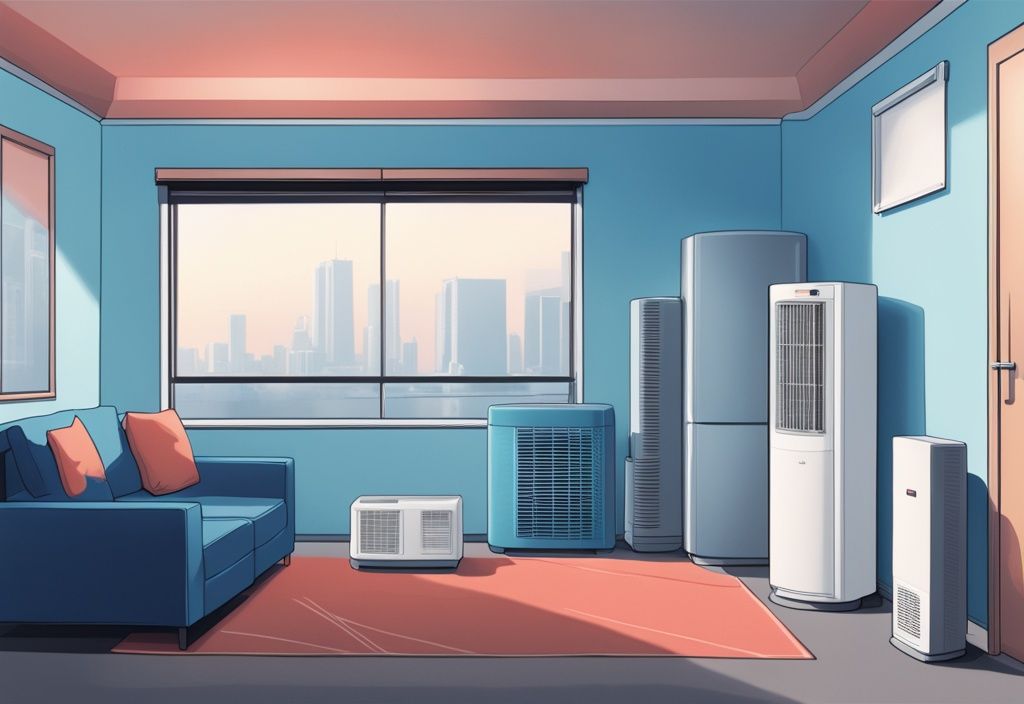
Now, if you’re all about the latest tech and saving on those energy bills, Daikin might just be your cup of tea. They’re known for their fancy gadgets and top-notch air quality. It’s like having a little piece of the future right in your living room. Plus, their air purification systems are top-tier, keeping your indoor environment comfy and sustainable.
Fujitsu, on the other hand, is the go-to for those who want reliability without breaking the bank. They pack a punch with their cooling power, especially in bigger spaces. And if you’re the kind who keeps an eye on the environment and your wallet, Fujitsu’s got you covered with their eco-friendly options.
At the end of the day, the choice between Daikin and Fujitsu boils down to what matters most to you. Is it cutting-edge tech or cost-effective reliability? Remember, the quality of installation also plays a big role in how well your unit performs. So, take a moment to think about your priorities and budget. Both brands are solid choices, so you can’t really go wrong. Just pick the one that feels right for your home.
FAQ
Here, we dive into some common questions folks often have when comparing Daikin and Fujitsu air conditioners. Whether you’re curious about energy efficiency, noise levels, or cost, I’ve got you covered with insights from my years in the field.
Which is more energy-efficient, Daikin or Fujitsu?
Both Daikin and Fujitsu offer models with top-notch 5-star Energy Star ratings. Now, from my experience, Daikin units tend to be a smidge more energy-efficient. This is largely due to their advanced inverter technology, which has impressed quite a few homeowners I’ve worked with.
Are Daikin air conditioners quieter than Fujitsu?
When it comes to peace and quiet, Daikin models are like a gentle whisper, with noise levels dipping as low as 19 decibels. Fujitsu isn’t far behind, starting at 20 decibels. So, if you’re looking for tranquility, both brands have you covered, but Daikin might just have the edge.
What is the warranty period for Daikin and Fujitsu air conditioners?
Both brands usually offer a solid 5-year parts and labor warranty. Some Daikin models go the extra mile with up to 7 years. And here’s a tip from my toolbox: If you get your Daikin installed and registered by approved contractors, you might snag a 12-year warranty on compressors and parts. That’s a deal worth considering!
How do Daikin and Fujitsu compare in terms of price?
In terms of cost, Daikin tends to have a heftier price tag, thanks to their advanced features and energy efficiency. On the flip side, Fujitsu offers reliable solutions that won’t break the bank, making them a great choice for budget-conscious buyers.
Which brand is better for larger spaces?
For those bigger spaces, Fujitsu shines with its powerful cooling performance, perfect for larger rooms or open-plan areas. But don’t count Daikin out—I’ve seen their models handle large spaces with ease too. Both brands have options that can meet your needs.
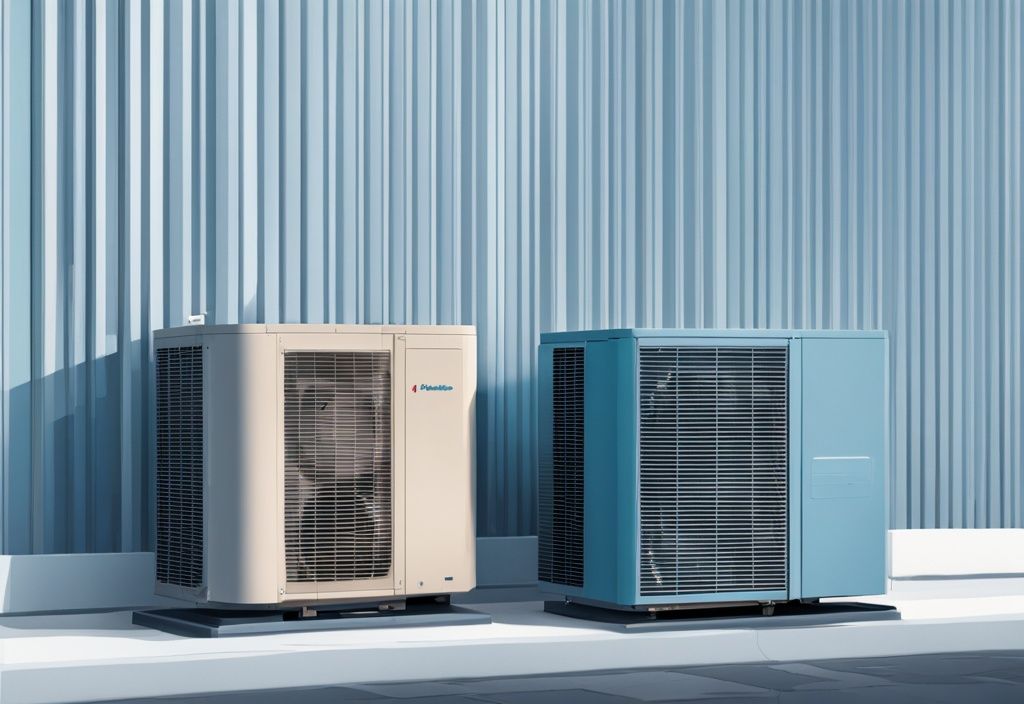
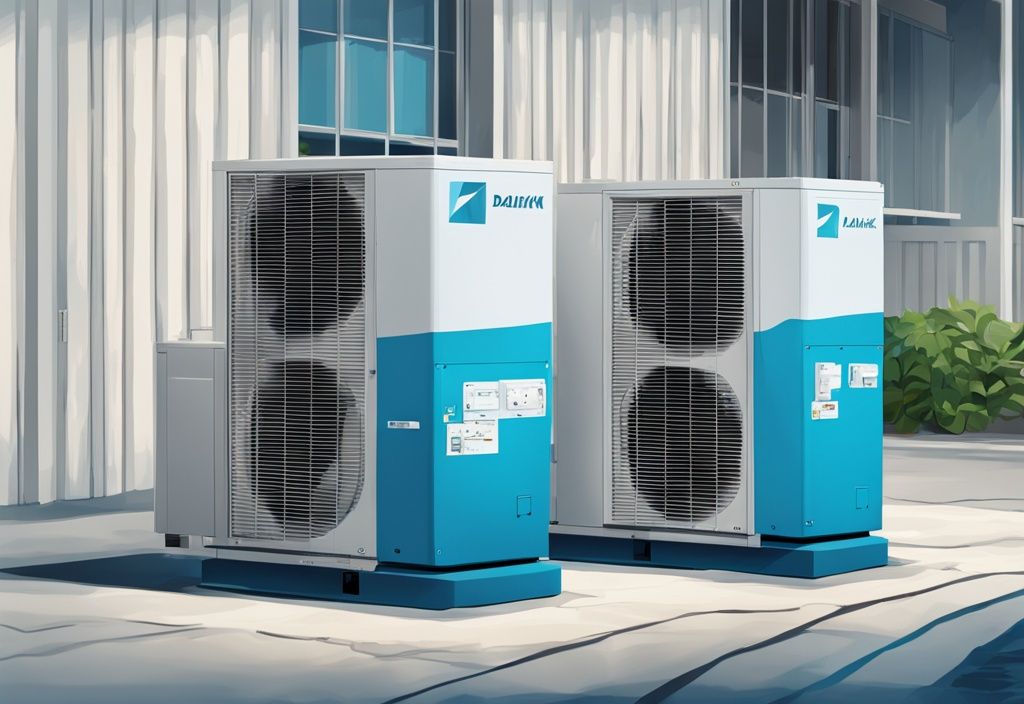
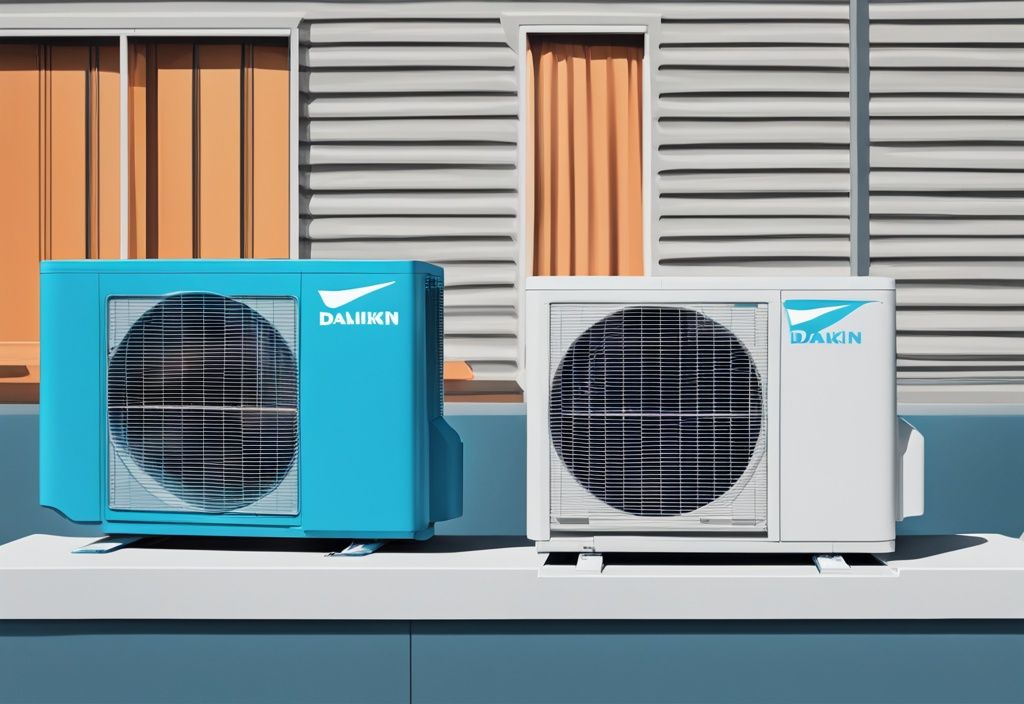
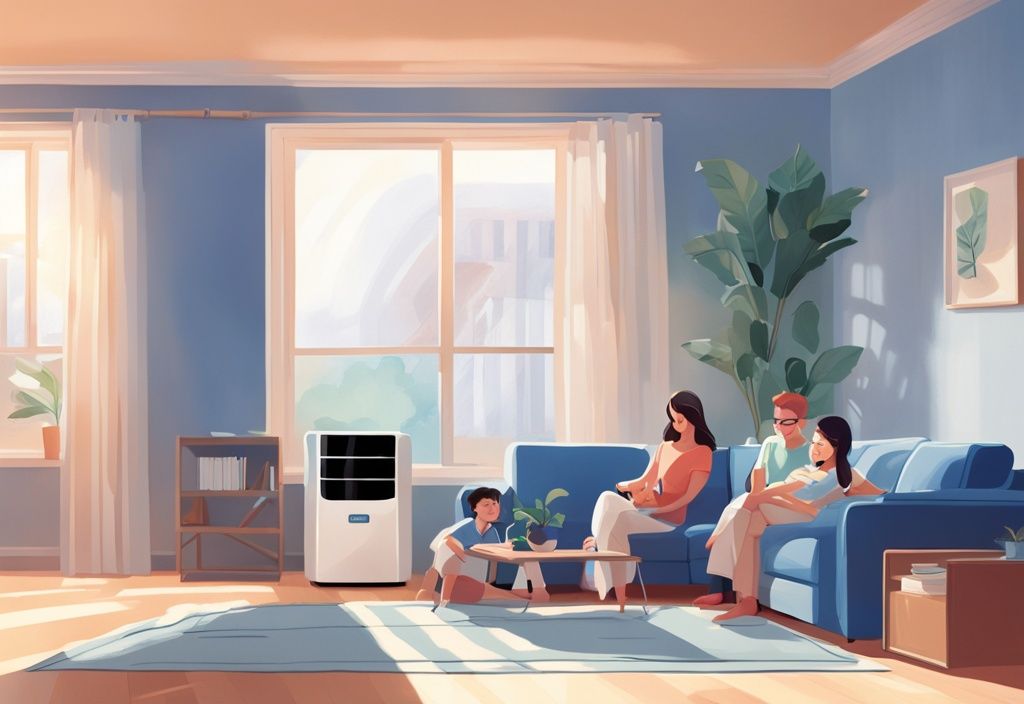
Post Comment